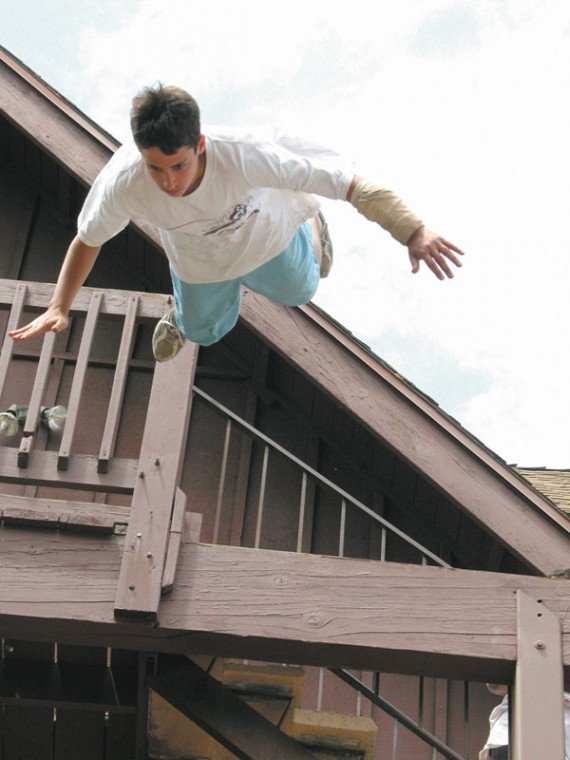Kids can perfect their skills and learn more about different
career paths as summer camps focus more on meeting students’
interest
Do you want to be a rock star? A professional actor? A video game designer or a marine biologist?
If you’re a kid between the ages of seven and 18, chances are there’s a summer camp out there for you.
Far from the rustic tent-on-a-lake camps that many adults attended in their childhoods, today’s summer camps are specialized settings more reminiscent of occupational workshops than campfire-and-Cumbayah get-togethers. They’re meant to shape children into leaders, inspire them to great careers and encourage them to love the outdoors or at least strive to attend the right college.
At ID Tech Camps, a series of week-long programs held at 36 university campuses in 17 states, students can choose from courses on topics such as digital video editing, robotics and video game creation.
The brainchild of Los Gatos High School graduate Alexa Ingram-Cauchi, the camp was designed to engage kids with technology, and expose them to college life. Overnighters eat, sleep and play on the campuses of Stanford University, Santa Clara University and the University of California, Santa Cruz under the watchful eye of graduate students and field professionals.
“If you’re taking programming and robotics, you might have someone teaching the class that’s getting their Master’s at MIT,” said Kendra Thurm Safran, spokeswoman for Campbell-based ID Tech Camps. “That way, the kids have mentors in their field. And they’re using the software that’s current, so they’re getting real-world experience while they’re articulating their creativity in a different way.”
And rather than spend all of their time in front of a computer screen, campers can also partake in “Surf and Tech” camp at UCSC, dividing their time between catching waves and computer classes, or “Sports and Tech” camp at Stanford, enjoying fencing, golf or tennis for half the day and creating Web sites or video games the other half.
If outdoor adventure is more to a kid’s speed, there are plenty of specialized camps to suit their tastes, from extreme sports and backcountry hiking to specialty sport camps for basketball, baseball and other popular sports.
For aspiring marine biologists, Chris Cameron, executive director of Camp Ocean Pines in Cambria, Calif. advertises a week of outdoor activities that flow seamlessly into the educational content provided by his staff of counselors, all of which are also marine biologists.
In many ways, contends Cameron, it’s better than a traditional summer camp, because not only are kids having fun kayaking and visiting tidal pools, they’re also learning.
“I think its more educational than fun, but the parents are usually bugged by their kids to attend,” said Cameron. “It’s, ‘Mom, Dad, pleeeease,’ because it’s not science class. Going to the aquarium or hiking up waterfalls are not boring things. And doing a squid dissection is a really cool, ooey-gooey thing.”
In fact, with the advent of the Internet, kids play a vital role in selecting summer camps today.
“The reason we have so many different kinds of camps is that many children are really looking for choice these days, be it in television or toys or summer camps” said Melanie Senior, spokeswoman for Pali Adventures Camp in Running Springs, Calif. “A lot of it is still word-of-mouth, but you get a lot of parents looking around or kids mucking around on the Internet who find you that way.”
Pali runs a variety of camps from a single location, allowing kids to specialize in one topic – say, becoming a rock star, actor or fashion designer – for half the day and allowing them to choose from any other topic during the rest of the day.
“There’s absolutely no expectation that they’ll pursue a career because of it, but if it interests them, it’s a good experience,” said Senior.
Still, some kids – and parents – take camp seriously. Campers in Pali’s acting academy are often seriously interested in the film industry and are particularly attracted to the camp because instructors take them to on an outing to meet real Hollywood agents. Some parents simply want their children to maximize their college options.
“You get a wide range,” said Thurm Safran. “You have some parents who are really pushing their kids to make a career out of what they do at camp, or pushing them because they think they’ll do better in college. But a lot of times, you get parents who think, my child’s going to have fun, and he’s not even going to realize that he’s learning.”
And while children at each of these camps get specialized attention, including student-to-instructor ratios as low as four-to-one, there is one drawback to specialized camps: they tend to be more expensive than their run-of-the-mill peers. Parents sending their kids to Ocean Pines will pay $750 per week, while ID Tech Camps run $649 to $999 depending on whether kids stay overnight. And if your tike wants to attend Pali, be prepared to dig deep. One-week sessions are $1,435 and two-week sessions run $2,795.
For more information on the camps listed in this article, visit InternalDrive.com, CampOceanPines.org or PaliAdventures.com. For more information on the variety of camps available throughout the state, visit MySummerCamps.com.













